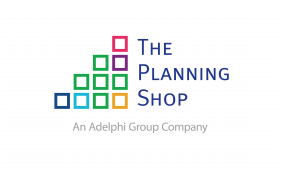Patient research is critical to brand success, particularly in oncology

We see it time and time again in the treatment of cancer – pharma companies focusing all their effort on oncologists.
It makes sense – oncologists are their primary target when trying to grow a brand, as they are the ones who will prescribe the product. But oncologists prescribe based largely on efficacy, encouraging patients to take products that they believe may provide better results.
This translates into hope for the patients – hope for more time with their families, hope for more birthdays and graduations, hope for more tomorrows. But hope is just part of the patient’s journey. Patients have many other thoughts and feelings along the road, some of which they hide and do not share with their physicians.
To grow a brand, it’s not enough for pharma to simply focus on oncologists. It’s critical to also understand what is happening with patients, not least because, as the end users, they may also influence the prescribers, as well as other patients.
Oncologists only hold part of the story to help a brand thrive. Patients can complete the story.
Holding back
Through our research at THE PLANNING SHOP, we’ve learned that cancer patients are taught that the most important thing in their life is fighting cancer.
They go through hours of doctor visits – oncologists, radiation oncologists, surgeons (sometimes multiple surgeons), and other specialists (cardiologists, pulmonologists, GYN ONCs). They sit in waiting room after waiting room with no one seemingly worried about the toll it takes on them. They spend hours in infusion chairs and on the phone trying to coordinate tests and appointments. They experience many inconveniences and side effects – which they may complain about to a nurse or family member or friend – but they do not often voice these complaints to their oncologist. They frequently hold it all in for fear of complaining too much and being taken off the medication that is providing them with hope for their future. They also live in fear of being labeled as a difficult patient, believing they might not get the most efficacious treatment if they are complaining about side effects.
We’re not saying that patients do not report serious side effects to their healthcare team – of course they do. But do they tell their oncologist how the treatment is really affecting them?
- Do they say that they are so fatigued that they don’t go out with friends?
- Do they tell them that they are so self-conscious that someone might notice they have lost all their body hair that they choose to stay home?
- Do they state that they live in fear that their nails are going to fall out, or that they worry about every ache and pain and what it might mean to them?
- Including thoughts about whether their cancer has returned. Has their cancer progressed? Is it growing?
No. Not always.
Patients keep many things to themselves. Everything around them tells them they are in a battle that only the strong survive. Therefore, they are afraid to show any weakness. Everyone around them is trying to be helpful by telling them they are strong; they are an inspiration. This is all well-meaning, but it contributes to patients not feeling safe enough to share what they are really going through.
Patients are also acutely aware of what their cancer diagnosis is doing to their loved ones or close friends. When they try to share, the strain and stress they are putting on their loved ones – who are powerless to make things better – is often visibly apparent. The more they share about the difficulties they are experiencing – due to the cancer or due to the associated treatment – the more pain they think they’ll cause. So again, they tend to hold back.
Market research for brand growth
In the context of market research for brand growth, we’ve always been good at talking to physicians to find out how they decide on efficacious care, what the logistics of diagnosis, testing, and treatment look like, and how patients move through the system. But when we ask physicians what patients go through mentally and physically – what patients truly think and feel about the drugs and the treatments – it becomes more difficult to get a clear picture.
As pharmaceutical market researchers, when we ask physicians about the side effects of products, we are only getting their side of the story – only part of the story – because patients are holding back lots of the information. And shouldn’t we have the complete story? Shouldn’t oncologists and drug companies have the complete story? We should. They should.
Additional insights for brand narrative
Patient research is absolutely critical to brand success: success for the pharma companies, success for oncologists, but mostly success for patients.
To get a clear and complete story about the challenges of cancer and its treatments, and then use the extra insights for positive brand growth, we need to talk to both patients and caregivers separately during market research, as well as the physicians.
It’s a worthwhile exercise to truly understand the positives and negatives of any medications and treatment plans, and surprisingly even Stage Four patients are happy to spend an hour or so on the phone sharing what they are experiencing.
In fact, for the patients and caregivers, this can be quite a cathartic exercise. In some ways, it is easier to tell a stranger what they have been going through than to tell a friend or family member.
Of course, we need to be sensitive to patients and how they are feeling when we design our studies. It is important to be flexible: interviews may need to happen over multiple sessions; patients may need breaks. We also need to think very carefully about what we are asking patients to do. It’s one thing to ask them to tell us about their experiences, it is quite another to ask them to do a series of exercises/activities that are not clearly tied to things that matter to them.
The brand benefits of understanding more
So how can brands benefit from talking to patients when the patients are not their direct target?
It’s simple. Understanding what the patients are really going through can be illuminating.
For example, if the insights show that there is a lack of understanding about treatment plans among patients, brands can improve patient materials to really help patients and support them through treatment.
Supporting patients can also result in more treatment success: well-supported patients are more likely to stay on treatment and therefore benefit from it.
Secondly, if there are two brands with similar efficacy rates, it would help to know how the brands also affect the mental and physical wellbeing of patients, as this extra information may have a bearing on which drug a prescriber chooses.
Perhaps one of the brands causes higher rates of a side effect, like diarrhea, that can adversely affect a patient’s ability to live their life. When diarrhea is bad, patients are confined to their house, and if they have a choice between two similar products, they will choose the one with less diarrhea. This is useful information for a pharma company as they can then take steps to proactively find ways to reduce the diarrhea and/or help oncologists and patients manage it.
Finally, patient understanding can lead to brands positively repositioning in ways that will resonate better with patients, which then also makes the physician-patient conversations more productive. Discussions with patients may illuminate brand levers that are not apparent simply from talking to oncologists.
Patient research is critical to brand success. When you next seek insights for your oncology brand, cast your net wider and capture the patients’ stories as well.
About the author
 Mary Dominiecki leads the Oncology Research Group at THE PLANNING SHOP, managing the strategic direction of the team and overseeing all oncology research projects. Her oncology experience has covered virtually every tumor type including solid tumors and hematologic malignancies.Before joining the company, Mary worked in the bio-oncology group at National Analysts Worldwide (now Naxion). She has also held various positions serving the pharma industry, including clinical publications lead at AstraZeneca, medical director for an oncology-focused medical communications agency, and senior medical writer in several therapeutic areas.
Mary Dominiecki leads the Oncology Research Group at THE PLANNING SHOP, managing the strategic direction of the team and overseeing all oncology research projects. Her oncology experience has covered virtually every tumor type including solid tumors and hematologic malignancies.Before joining the company, Mary worked in the bio-oncology group at National Analysts Worldwide (now Naxion). She has also held various positions serving the pharma industry, including clinical publications lead at AstraZeneca, medical director for an oncology-focused medical communications agency, and senior medical writer in several therapeutic areas.
About THE PLANNING SHOP
THE PLANNING SHOP is an insight-led brand and communications consultancy of choice for the healthcare industry, with offices in the US and UK.
We dig deeper, go further and challenge perceptions to generate the insight-led business solutions pharmaceutical companies need to grow successful healthcare brands.













